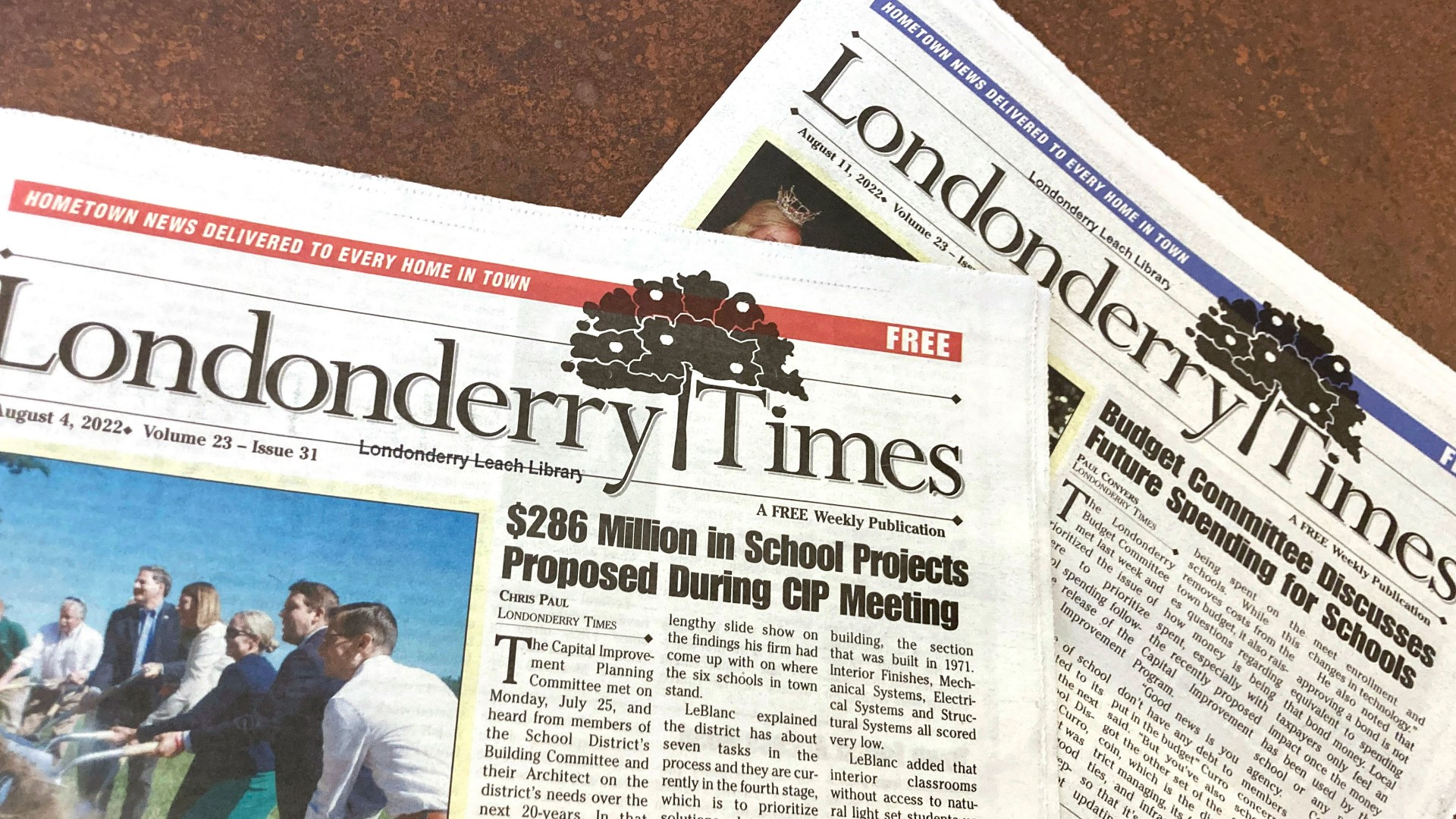CONCORD, N.H. — The publisher of a weekly newspaper in New Hampshire is accusing the state attorney general’s office of government overreach after she was arrested on charges that she published advertisements for local races without properly marking them as political advertising.
The six misdemeanor charges allege that Debra Paul, publisher of The Londonderry Times, failed to identify the ads with "appropriate language" indicating that they were ads and saying who paid for them as required by state law, the New Hampshire attorney general's office said in a news release, after reviewing cases that go back to 2019.
“This is clearly a case of a small business needing to defend itself against overreaching government," Paul, 62, who's also a member of the town council in Londonderry, responded in a statement.
“I would like to think the attorney generals office has more important matters to deal with than to send press releases out on misdemeanors such as this," the statement said. “With multiple unsolved homicides over the past year, this seems a bit absurd."
The attorney general's office first issued Paul a letter pointing out the language omission in a political ad that ran in the weeks leading up to an election in March 2019, according to a police affidavit. The letter asked her to include the language going forward.
It issued a second letter in March 2021 after receiving a complaint about another political ad that didn't receive the required “paid for" language, and that an investigator from the office followed up with with a phone call to her, the affidavit said.
The office sent another letter to her in September saying another ad “failed to contain" name and address information, and did not mark it as “political advertising." She was notified that this was her “second and final warning" and if the law was violated again, the attorney general's office “may pursue appropriate enforcement action."
After the attorney general's office received more complaints this year, the February and March issues of the paper were reviewed, the affidavit said. Two political ads leading up to a local election in March did not contain the “paid for" language and a third had no “political advertisement" designation, it said.
Two candidates who had placed ads during that time told the investigator that they had worked with Paul on them. They said they were not aware of language requirements and that any omissions were unintentional.
Paul, who along with her husband are the only two employees at the paper, was contacted by the investigator in May and said she originally believed the state's complaint involved advertising rates, the affidavit said. She said she was trying to review the ads and believed that the “paid for by" address information was only required on political signage, not ads, the affidavit said.
The affidavit said altogether, nearly 60 violations in the Times and a related publication were counted between 2020 and this year.
“My understanding is that I’m accused by someone of neglecting to use the phrase, “Political Advertisements,” when it was an obvious political ad," Paul said in her statement.
The charges carry a maximum penalty of up to a year in jail. Paul, who is not in custody, is scheduled to be arraigned Oct. 19.
“The Londonderry Times is among the dwindling numbers of small newspapers in New Hampshire, as well as around the country," her lawyer, Tony Naro, said in a statement Friday. “The Londonderry Times does their absolute best to put out a quality publication with limited staff and a limited budget. Ms. Paul acted with no criminal intent, denies the allegations, and is presumed innocent."
A spokesperson for the attorney general's office said the office could not comment on the case further but said its election law unit receives hundreds of calls or complaints about political advertising each election cycle, and that the overwhelming majority of them are resolved without opening a matter for formal investigation.
As an example of another matter the office investigated, the spokesperson provided a letter dated Aug. 8 and sent to the publisher of a periodical who is running for office regarding a complaint it received about the publisher's own campaign ad. The letter said the candidate was not complying with campaign finance obligations and didn't mark ads as political advertising.

